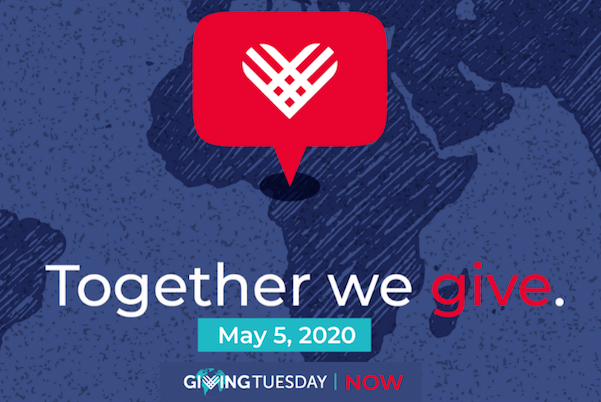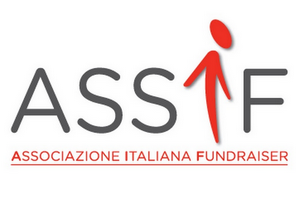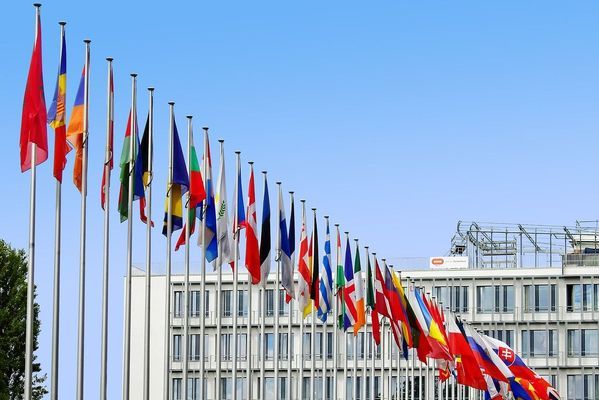
#GivingTuesdayNow launches in response to Coronavirus
May 6, 2020
Health crisis brings opportunity to build public understanding of fundraising in Italy
May 6, 2020Updated: 12 May 2020
With the coronavirus negatively impacting the income of not-for-profit organisations across Europe, many fundraising associations have been lobbying their governments for support.
Help is beginning to trickle through in a number of countries with Sweden, Slovakia, Italy, Ireland and the UK among those now seeing some government support, while others are still campaigning.
Italy
The Italian government has agreed to unlock the proceeds of the 5xMille tax due from returns submitted by donors in 2018 early to help support the country’s charities through the COVID-19 crisis. After a successful lobbying campaign by the nation’s charities and sector bodies, the government has confirmed that payments from the 2018 returns will be made imminently.
According to ASSIF – the Italian Fundraising Association, €1 billion has already been allocated to non-profit organisations by the Italian public in their 2018 and 2019 returns. The release of that funding would help the country’s charities continue to operate during the coronavirus pandemic. Calling on government to release the funds, the association emphasised that, unlike many businesses, non-profits do not have sufficient capital or funds to survive the sudden economic crisis.
ASSIF also highlighted that the sector’s role in supporting the most vulnerable in society will be even more crucial during the recovery period from the virus.
There is no confirmation from the Italian government yet as to when funds from donors’ 2019 tax returns may be released.
Sweden
Sweden’s Giva Sverige has also been calling for the urgent implementation of a financial support package for charities after a report co-authored by Forum, Giva Sverige, and Famna estimated that civil society in Sweden could lose SEK 1.1 billion in 2020 as a result of Covid-19.
Giva Sverige has almost 160 Swedish member organisations, which collect approximately SEK 8.8 billion annually from the public, business, organisations and foundations. Seven out of ten of these organisations say that their revenues have fallen overall during the coronavirus crisis, while eight out of ten have been forced to change their fundraising activities, with new donor numbers decreasing. The loss of second hand sale income is expected to amount to 345 million SEK.
In total, the report says, funds raised for civil society operations in Sweden are expected to decrease by approximately SEK 175 million in 2020, while the cost of increased support operations due to Covid-19 are estimated to reach approximately SEK 155 million.
Charlotte Rydh, secretary general of Giva Sweden commented:
“Civil society needs a financial support package urgently to be able to contribute to the fight against the corona virus with full force, and to secure operations in the long term. Such a package needs to amount to at least SEK 1.1 billion.”
Some progress has been made: the end of April saw the government announce aid of SEK 39 billion for companies and organisations that lost at least 30% of their sales in March and April.
Forum Chairman Patrik Schröder commented on the decision:
“This is a big step forward. Now it is important that the process for seeking and obtaining funds is made as fast and simple as possible and that no technical barriers prevent non-profit organisations from taking part in the support.
“We associations also want to point out that this support does not solve all the challenges the non-profit sector faces. More will be needed to enable us to continue contributing to the fight against the corona virus’s consequences with full force, and to secure important operations in the long term.”
Germany
In Germany, Deutscher Fundraising Verband and an alliance of umbrella bodies, civil society organisations, experts and scientists issued an open letter last month calling on the government to support the non-profit sector during the current crisis.
In the letter, the alliance calls on the government to grant non-profit organisations access to money from protection funds, and to expand the scope of non-profit law to better support charities when their projects and events cannot take place.
It also asks the government to enable cross-border COVID-19 aid so that the country can support regions of the EU affected by the virus, and to recognise this for tax purposes, to fund measures to improve digitisation in the third sector so that more charities are able to remain functional, and promote research into the consequences of the pandemic in civil society in order to identify and counteract possible effects on and damage to civil society from the current crisis as early as possible.
UK
In the UK, April saw Chancellor Rishi Sunak unveil a rescue financial package for charities affected by the coronavirus. £750 million (equating to around €855 million) is to be released to front-line charities with almost half of the money allocated towards small, local charities working with vulnerable people, and one quarter to hospices.
While the funding announcement was widely welcomed, sector bodies have warned that it is unlikely to be enough to protect many charities and charitable services from closure.
The National Council for Voluntary Organisations, Chartered Institute of Fundraising and Charity Finance Group are among a group of sector bodies that have lobbied Government to offer emergency funding. In their #EveryDayCounts campaign, the group highlighted that charities face income losses in excess of €5 billion in a matter of weeks as a result of the crisis.
Ireland
Many Irish charities, community and voluntary groups, and social enterprises have also been severely impacted by a sudden collapse in income. Initial calculations by Charities Institute Ireland (Cii) estimate the loss to be around €380m in total.
According to Cii, the Irish Government’s Temporary Wage Subsidy Scheme (TWSS), funding continuity commitments being made by many funding departments and agencies, and charities’ own actions to fundraise in different ways and reduce costs will go some way to addressing these losses. However, feedback from its members shows that there are still significant costs that such schemes and commitments will not cover, and Cii is lobbying the government for further support.
Liz Hughes, CEO of Cii said:
“Together with a number of charity umbrella bodies, alliances and infrastructure groups, Cii has been working collaboratively to make the case to Government for a support package for the sector. Based on feedback to date, we believe that while initially the official view was that Government supports scheme such as the TWSS would suffice, the inadequacy of those measures and the urgency of the situation is now acknowledged and understood.”
“Cii’s funding partner, the Department of Rural and Community Development (DRCD) continues to take a lead role in advancing the case. We continue to engage with DRCD on a regular basis and hope that an announcement on a range of supports will be announced soon.”
Update: €35m Stability Fund launched for Irish charities
France
In France, research by France générosités among its members about their expectations for 2020 in light of COVID-19 has found that a third of respondents fear the economic difficulties encountered by their donors will lead to them suspending their giving or cancelling their direct debit. 17% are also worried about the long-term economic risks of their donors and the impact on end-of-year donations.
France générosités has drawn up proposals to the government to stimulate donations from the French in both the short and long term. It is asking the government and parliament to introduce tax incentives in the next finance bill, due in June 2020, to support exceptional fundraising for all causes from June to 31 December this year.
Its proposals include an increase of the tax reduction rate granted for donations by individuals under article 200 of the general tax code from 66% to 75% until 31 December, and the creation of an exceptional tax credit on the generalised social contribution equal to 75% of the donation amount for non-tax payers.
While this has not yet been approved, the end of April saw an amendment made to the General Tax Code to increase the country’s Coluche donation ceiling to €1,000. Coluche donations are intended to provide people in need with access to food and housing and are deductible at 75% up to €552. Due to the coronavirus, this ceiling has increased to €1,000 for donations made from 1 January to 31 December this year.
A Solidarity Ticket system was also brought into place at the beginning of May to help cultural non-profit organisations by incentivising people to waive their right to a ticket refund for an event unable to take place. Under the system, when they do so, they benefit from a tax reduction on the amount paid.
Slovakia
In Slovakia, a Coordinating Crisis Task Force for the non-profit sector has been established with the primary objectives of identifying the impact of the crisis, including legislative and financial constraints on the sector, mapping the needs of organisations, and working between the state and civil society.
With the current situation expected to have a negative impact on the income the sector receives from Slovakia’s 2% tax law, which enables tax paying individuals and companies to allocate a small percentage of their income tax directly to NGOs of their choice, the National Council of the Slovak Republic (Parliament) has also approved an amendment to the law. This will see taxpayers given extra time to decide how to allocate their 2%, and NGOs given an extra year in which to use funds raised in 2019 through this scheme.
Commenting on the changes, Eduard Marček, co-founder and head of the Slovak Fundraising Centre, and EFA president said:
“This gives a great deal more flexibility to organisations in making use of the tax allowance. It’s an important change particularly for those NGOs that have had to suspend their activities due to the pandemic.”
Additional action in Slovakia includes the adoption of an amendment to Act no. 67/2020 Z.z., on certain extraordinary measures in the financial field in connection with the spread of COVID-19, which provides for the possibility of the wider use of the funds received from the 2% tax.
According to the current wording of the law, any recipient, regardless of the focus of its activities, can also use the funds to help mitigate the negative consequences of a pandemic by the end of 2021.
The Netherlands
The Dutch fundraising association, Goede Doelen Nederland, is asking government to consider providing specific support for charities. Of the eight aid measures for businesses, only one – financial support to help employers maintain jobs – is applicable for charities.
An initial survey suggests that 80% of the association’s members are already facing a decline in income and more than 75% are concerned about the continuity of the work they do.
“The work of charities is under pressure because various actions and events are cancelled and because public collections and donor recruitment are suspended on the street and doorstep. As a result, income is falling,” says Margreet Plug, director of Goede Doelen Netherlands.
In the survey, Dutch charities reported that they expect their income to fall by between 10% to 30% over the year, equating to tens of millions (Euros). Two thirds of respondents expect that this will also impact charity sector employment. They anticipate that the areas that will suffer the worst income losses are public collections, gifts and donations from individuals, and corporate donations.
Goede Doelen Nederland is continuing to work closely with the justice and security ministry, lobbying for further support for the nation’s charities.
Related news: EU response to Covid-19: What support for charities?




